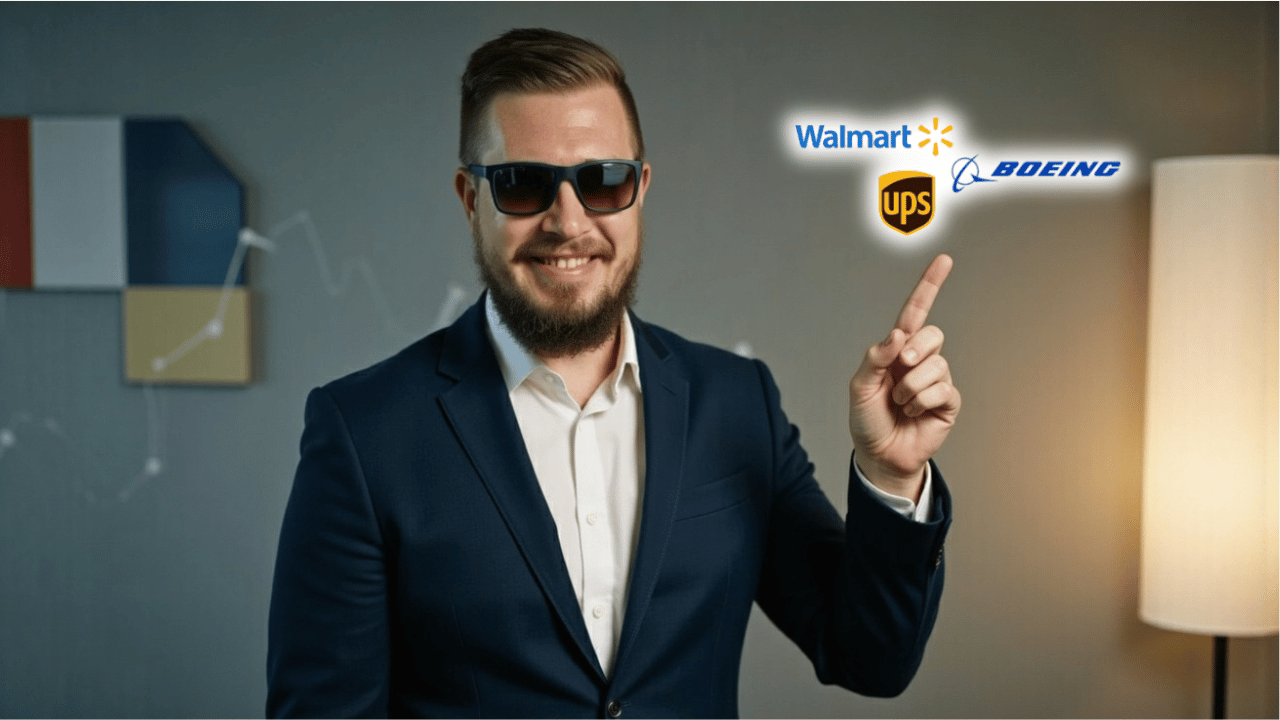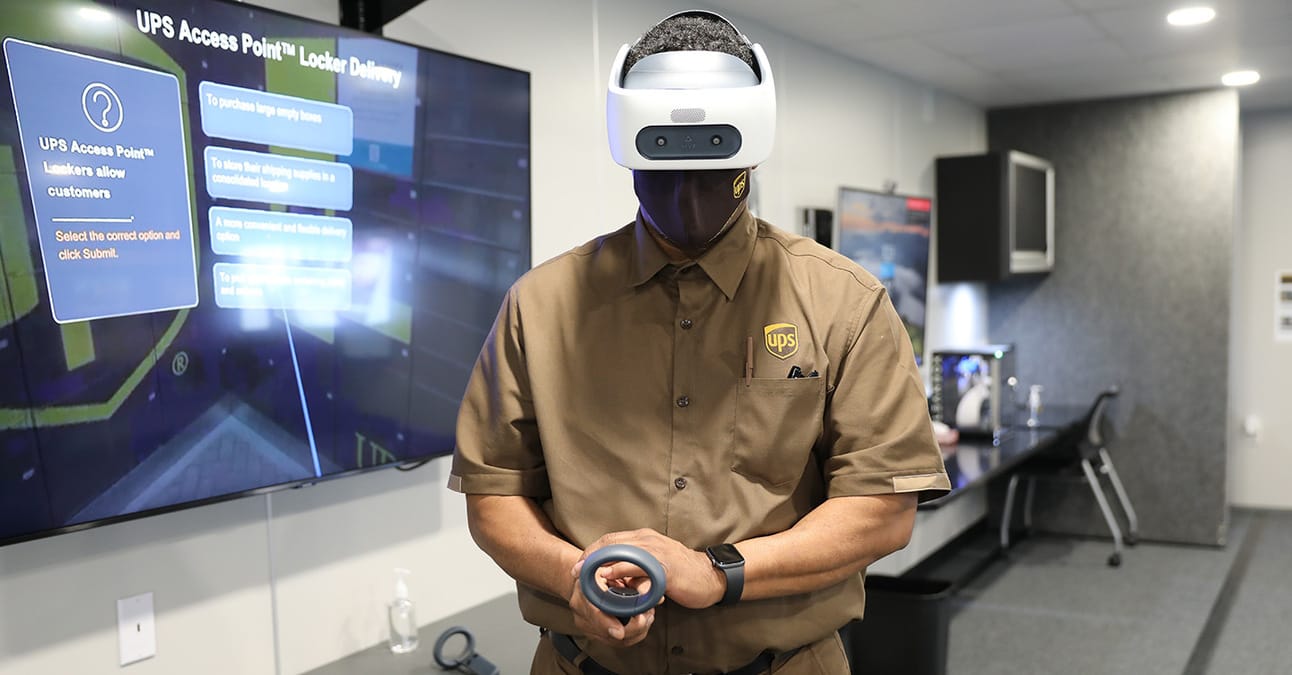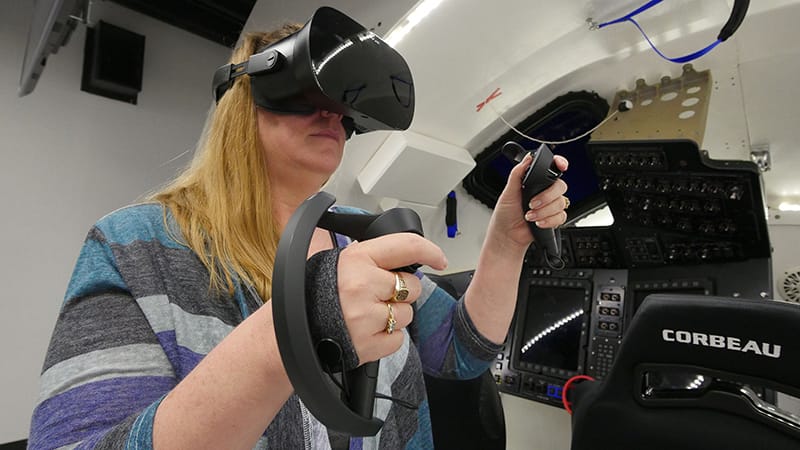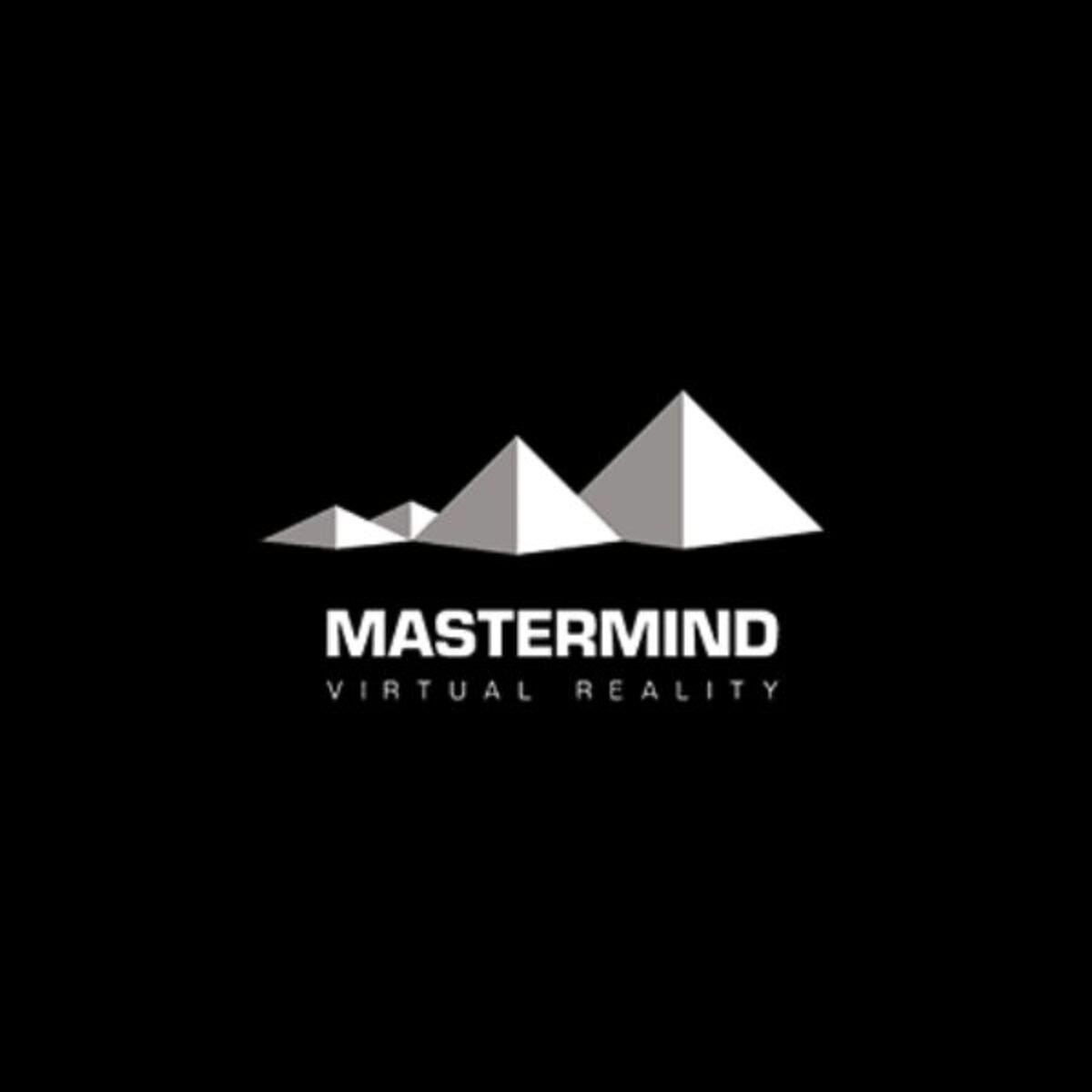Traditional training is dead, and the Fortune 500 just signed the death certificate.
The world’s largest supermarket chain no longer sends staff to training academies. One of the biggest logistics companies scrapped classrooms for driving simulations. The top aerospace manufacturer trains jet mechanics in virtual reality.
This trend isn’t a prediction; it’s already happening.
This article reveals the five Fortune 500 giants that have fully embraced VR, along with the insights you can gain from their bold decision.
→ This week’s sponsor is building the tools to help you catch up.
You Don’t Need to Be Technical. Just Informed
AI isn’t optional anymore—but coding isn’t required.
The AI Report gives business leaders the edge with daily insights, use cases, and implementation guides across ops, sales, and strategy.
Trusted by professionals at Google, OpenAI, and Microsoft.
👉 Get the newsletter and make smarter AI decisions.
🗓️ What’s Coming Up Next
Mastermind Webinar with Bruno Filkin
Webinar: MastermindVR founder Bruno Filkin.
Join us for the first webinar session, hosted by Bruno Filkin, who will walk you through how he builds VR software for enterprise training—step by step.
He’ll unpack real client use cases, including how Mastermind VR helped Karl Storz cut training time with a custom VR simulation.
Expect live Q&A, behind-the-scenes walkthroughs, and a chance to see how high-ticket VR projects come to life—from prototype to deployment.
📍 When: To be announced — RSVP to stay updated
📍 Register: here
The 3 Fortune 500 Companies That Have Ditched Classrooms for VR
Virtual reality (VR) is transforming corporate training, with Fortune 500 companies leading the way.
By replacing traditional classroom training with immersive VR experiences, these companies enhance employee skills, reduce costs, and improve retention rates.
Here are five Fortune 500 companies that have successfully adopted VR training, highlighting their innovative methods and tangible benefits.
1. Walmart: Transforming Retail Training
Walmart, the world’s largest retailer and No. 1 on the Fortune 500 list, has implemented one of the most extensive VR training programs, targeting over 1 million associates across approximately 4,600 stores.
The company uses VR to train employees in customer service, compliance, disaster preparedness, and high-pressure scenarios like Black Friday.
Why VR?: Previously, Walmart relied on classroom training at 220 Walmart Academies, which required travel and tethered devices.
VR has largely replaced these methods, offering a scalable, hands-on approach. Using over 17,000 Oculus Go headsets, Walmart partners with Strivr to deliver immersive training modules.
Impact:
Improved Performance: VR training has boosted test scores by 10–15% and enhanced knowledge retention compared to traditional methods.
Experiential Learning: As Andy Trainor, Walmart’s senior director of U.S. Academies, notes, “The outstanding thing about VR is its ability to make learning experiential” (Walmart VR Training).
Cost Efficiency: By reducing the need for physical training facilities, Walmart has streamlined its training process.
The program’s rollout to all stores takes an important step away from classroom-based training, positioning Walmart as a leader in VR adoption.
HUGE XR NEWS (June 2025 Edition)
Meta & Anduril Partner on Military XR Headsets
Meta and defense tech firm Anduril have announced a collaboration to develop advanced XR devices for the U.S. military.
This partnership aims to enhance battlefield awareness and control of autonomous systems. The initiative is privately funded and leverages both companies’ expertise in hardware, software, and AI technologies. (learn more)
Vuzix Expands AI Integration in Smart Glasses
Vuzix has partnered with Ramblr to enhance its smart glasses with real-time AI guidance.
Additionally, Vuzix and Wyr.ai have launched an AI-driven platform for quality assurance inspections based on the Vuzix M400 smart glasses, aiming to improve enterprise workflows. (learn more.)
XR in Construction Market Projected to Grow Significantly
A recent market forecast report indicates that the XR in Construction market is expected to grow at a CAGR of 23.34%, reaching $67.34 billion by 2030.
This growth is attributed to the increasing adoption of XR technologies for training, design visualization, and project management in the construction industry. (learn more)
XR Awards 2025 Winners Announced
The XR Awards 2025 winners were revealed on May 29, celebrating excellence in various categories such as Best Virtual Reality Solution and Best XR Immersive Training Solution.
The awards highlight the industry’s top innovators and their contributions to XR technology. (learn more)
DreamPark Secures $1.1M for Mixed Reality Experiences
DreamPark, a company specializing in transforming physical spaces into immersive environments using mixed reality, has raised $1.1 million in funding. The investment will support the development of their XR experiences, which aim to enhance real-world interactions. (learn more)
2. UPS: Revolutionizing Driver Training
United Parcel Service (UPS), a global logistics leader and Fortune 500 company, has adopted VR as the primary training method for drivers at two Integrad facilities in Europe.
The program focuses on simulating driving scenarios in German and UK streets, testing drivers on hazards like pedestrians and traffic.
Why VR?: UPS previously used touchscreen devices for driver training, which sent mixed safety messages. VR, using HTC Vive headsets, has replaced these devices, offering a more realistic and safer training environment. The company plans to expand VR to tractor-trailer drivers and other operations.
Impact:
Enhanced Retention: VR training increases knowledge retention by 57% compared to video or text-based methods (Cognitive3D Blog).
Risk-Free Practice: Drivers gain experience in a controlled virtual environment before real-world application.
Efficiency: As Laura Collings, UPS training manager, states, “We find that [drivers] are learning the verbiage much faster” (CNBC Article).
By making VR the primary training method, UPS has effectively moved away from traditional classroom settings for driver education.
VR Tool of the Week: Squint 2.0
Squint unveiled Squint 2.0 in April 2024 and is recognized as one of Fast Company’s most innovative AR/VR companies of 2025. This platform leverages AI to transform videos of factory tasks into interactive AR/VR training modules. It also features an AI copilot that provides real-time answers based on uploaded manuals and documents.
Key Features:
AI-generated AR/VR demos from standard task videos
Real-time AI assistance for trainees
Mobile app for on-the-go training
Impact:
Reduces downtime and accelerates onboarding
Enhances productivity and standardizes procedures
Adopted by industry leaders like Ford, Michelin, and Colgate - Palmolive
3. Boeing: Innovating Aerospace Training
Boeing, the world’s largest aerospace company and a Fortune 500 mainstay, uses VR for maintenance and pilot training across aircraft like the 737 MAX, 777X, and 787 Dreamliner.
Through initiatives like the Boeing Maintenance Synthetic Trainer, VR simulates complex tasks such as landing gear repair and navigation system maintenance.
Why VR?: While Boeing still uses some classroom training, VR has become a significant component, reducing its reliance on physical simulators and travel. The company’s investment in VR startups like C360 through Boeing HorizonX underscores its commitment to immersive training.
Impact:
Time Savings: VR cuts training time by up to 75% per person (Light Reading).
Accuracy Boost: Maintenance tasks see a 33% increase in accuracy with VR and AR.
Flexibility: VR allows training “anywhere—whether on-site, at home, online or offline” (HQSoftwareLab).
Boeing’s VR programs are deployed globally, with nearly 100 high-fidelity 3D lessons, indicating a substantial shift toward virtual training environments.
The Bigger Picture
These five Fortune 500 companies—Walmart, UPS, Boeing, Bank of America, and Farmers Insurance—demonstrate the power of VR to transform corporate training. By moving away from traditional classrooms, they are achieving:
Cost Efficiency: Significant savings in travel and facility costs.
Enhanced Learning: Higher retention rates and faster skill acquisition.
Scalability: Ability to train thousands of employees across global operations.
Safety and Engagement: Risk-free environments that boost employee confidence.
As VR technology continues to evolve, with the global VR market projected to grow from $20.83 billion in 2025 to $123.06 billion by 2032 (Fortune Business Insights), more companies are likely to adopt this approach.
These pioneers are setting the stage for a future where immersive training becomes the norm, redefining how employees develop skills across industries.
That’s a wrap for today!
Talk soon!
Bruno Filkin
Founder, Mastermind VR
VR Strategy Consultation
Ready to explore VR training for your team?
Take the Next Step
Let us review your project and discuss possible development and production details.
👇🏼
Learn AI in 5 minutes a day
What’s the secret to staying ahead of the curve in the world of AI? Information. Luckily, you can join 1,000,000+ early adopters reading The Rundown AI — the free newsletter that makes you smarter on AI with just a 5-minute read per day.











